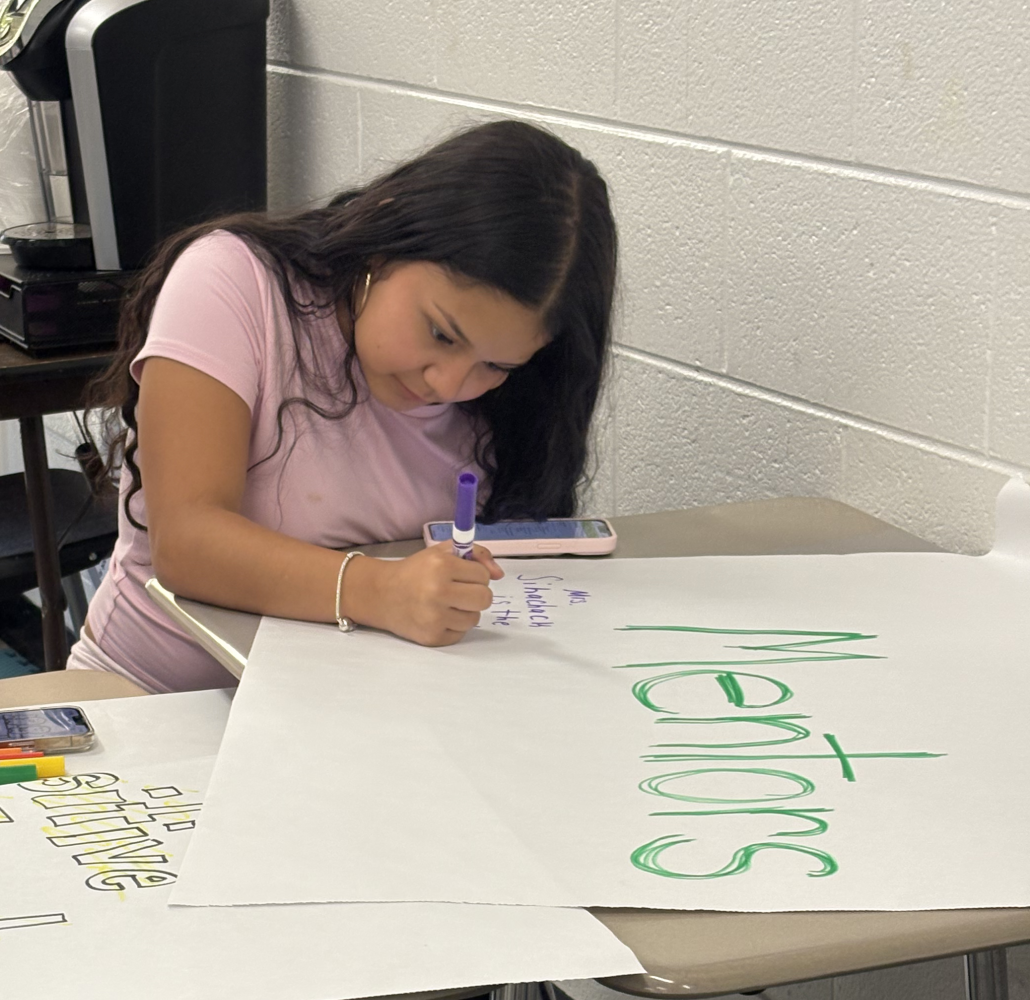Editor’s Note: This story contains mention of suicide. If you or someone you know needs help, there are multiple places you can contact. You are able to chat or call 988 Suicide & Crisis Lifeline. The 988 Lifeline is a national network of local crisis centers that provides free and confidential emotional support to people in suicidal crisis or emotional distress 24 hours a day, 7 days a week in the United States. In Georgia, you can also call the toll-free, 24-hour hotline Georgia Crisis and Access Line (GCAL) at 1-800-715-4225.
In 1988, North Dakota had one of the highest teen suicide fatality rates in the nation. Over the course of three years, founder Mark LoMurray, who was working in juvenile justice as the head of the Police Youth Bureau, attended many funerals of teenagers. With these experiences, LoMurray gained a “profound sense that more could be done to get ahead of these issues.”
Sources of Strength is the program that LoMurray created to focus on preventing suicide and bringing mental and emotional awareness to schools.
The program partners with thousands of elementary, middle and high schools across the United States and Canada, and promotes students to be able to identify the places and people they can go to when they feel down. Including, but not limited to, mentors, teachers, peers and religion.
At McIntosh, math teacher Janell Brown is the Sources of Strength sponsor.
“Our goal in Sources of Strength and everything that we are trying to push is that no matter how bad it is, you always have a strength to lean on,” Brown said.
In the Georgia Student Health Survey, out of 994 students at McIntosh who responded to the survey, 39 students from grades nine to ten chose strongly disagree to the prompt, “I know a student at my school that I can talk to if I need help (e.g., homework, class assignments, projects).” District-wide, 393 students chose strongly disagree out of 8,265 total responders.
Out of the district, McIntosh students only played a small role in the sum of 393 responses to the prompt.
Sources of Strength held a training for students in the club so that they would be able to help them better and understand their peers who may be struggling. Similarly to how teachers go through training to understand mental health behaviors.
“We are doing a training for the students [in Sources of Strength] so that they can figure out ways to help their peers. We have a trainer in Georgia that goes around to the different counties and they provide the trainer and all the materials,” Brown said.
Mental health awareness is important to spread because it can show people who feel alone that they aren’t and they have people who support them.
“[We] just try to make everybody have fun, enjoy what they’re doing and enjoy being at school and realize that it’s not the worst place to be,” Brown said.
As teenagers, it can be easier for us to understand each other’s point of view because a lot of teenagers go through similar things. So, if students are able to recognize this and reach out, it could help people feel less isolated and alone.
“Mental health for kids between the ages of 12 and 25 is extremely important,” Brown said.
Today, the rate of suicide in North Dakota went down from 34 per 1 million to 17.8 per 100,000.



